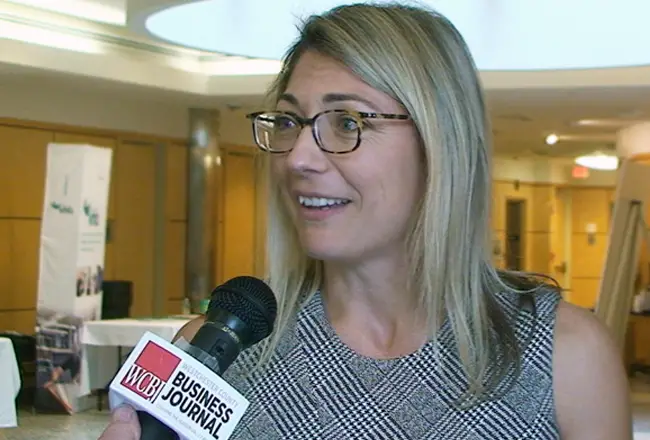‘Gridlock Sam’ says driverless cars could impact urban sprawl
Driverless cars, known by the more scientific-sounding name autonomous vehicles, may change the shape of suburban development, according to Sam Schwartz, aka “Gridlock Sam” and a former New York City traffic commissioner.
Schwartz, who also is known as “Gridlock Sam” by virtue of his column with that title appearing in the New York Daily News, was the luncheon keynote speaker Dec. 6 when Pace University”™s Land Use Center presented its 17thAnnual Alfred B. DelBello Land Use and Sustainable Development Conference.

Schwartz addressed about 250 developers, consultants, local leaders, attorneys and other professionals gathered at the Pace campus in White Plains. His firm, Sam Schwartz Transportation Consulting, specializes in transportation planning and engineering. Schwartz owns a house in Somers and is quite familiar with suburban driving, commuting patterns and traffic jams. His new book, “No One at the Wheel: Driverless Cars and the Road of the Future,” looks at the inevitability of autonomous vehicles, the problems they may cause and the benefits they might provide.
In an interview with the Business Journal, Schwartz said, “Imagine someone from Westchester who works in Manhattan. The autonomous vehicle takes that person there; that person is at work at 9 o”™clock and tells the autonomous vehicle ”˜you know it costs $80 to park here for the day, why don”™t you just drive back home to Westchester and wait until I tell you that I”™m ready to leave.”™”
In addition to doubling the number of miles traveled on the area”™s roads as a result of cars making one leg of a round trip empty, Schwartz suggests driverless cars may encourage people to live farther away from urban centers.
“Suddenly the car becomes much more comfortable and you can get lots of things done, even sleep done in your car.” Schwartz said that Putnam and Dutchess and other counties “will be commuter areas and sprawl will increase to many areas that really can”™t support it.”
Schwartz was only half-joking when he said that we”™ve got to watch out for empty “zombie cars” taking over. “The traffic could very well get much worse because there will be more vehicle miles traveled, more cars on the road than ever before.”
The current interest among developers and municipalities in transit-oriented developments may help keep cars off the roads, Schwartz suggested. “Building town centers where you can walk and you have greater accessibility to local stores that”™s terrific, but there is going to be a tension out there if we rely on the autonomous vehicle to drive us further and further out and encourage sprawl.”
He said there is a definite positive trend taking shape right now regarding traffic levels. “Younger people, millennials, are driving far less than previous generations. There”™s a 20 percent drop in the amount of driving that millennials do compared to any other generation that came of age,” he told the Business Journal.
Getting to the train station is an area where Schwartz believes autonomous vehicles could have a big impact on life in the suburbs. They could “”¦take you that last mile or two or five miles to a train station to drop you off and pick you up when you come back.”

Christopher B. Leinberger, chair of the Center for real Estate and Urban analysis of the George Washington University School of Business was the opening keynote speaker at the event. Councilwoman Emily Svenson and Planning Board Chairman Michael Dupree of the town of Hyde Park received Groundbreaker”™s Awards. Richard L. O”™Rourke of the law firm Keane & Beane PC was the Founder”™s Award recipient. The Distinguished Young Attorney Award went to Noelle C. Wolfson of the law firm Hocherman Tortorella & Wekstein LLP. Breakout sessions covered subjects such as smart growth, maintaining water and sewer infrastructure, land use law and environmental regulations.
Tiffany Zezula, deputy director of the Pace Land Use Law Center, told the Business Journal that the center stages the Alfred B. DelBello Land Use and Sustainable Development Conference to act as a facilitator for sharing information and encouraging discussion of new ways to plan, regulate and design communities. “We are an educational entity. We don”™t take any positions,” Zezula said. “The Land Use Law Center is actually celebrating its 25thanniversary, so we are thrilled about that.”